Our learning and teaching is designed to provide the best learning experience for our students, whether they study a course on-campus or online.
Our highly experienced educators adopt a collaborative approach to designing our courses with industry input. They explore innovative and technology-based teaching practices that benefit the student learning experience and advance the scholarship in Learning and teaching.
With nationally recognised educators supported by state-of-the-art learning and teaching facilities, the College offers exceptional study opportunities for undergraduates and postgraduate students. We are committed to the quality of education and support the professional development of our academic staff recognising and awarding teaching excellence and innovations in higher education.
Future Technology Skills Platform courses
RMIT is leading in program and course design innovations, the STEM college is the first to develop its Future Technology Skills Platform courses.
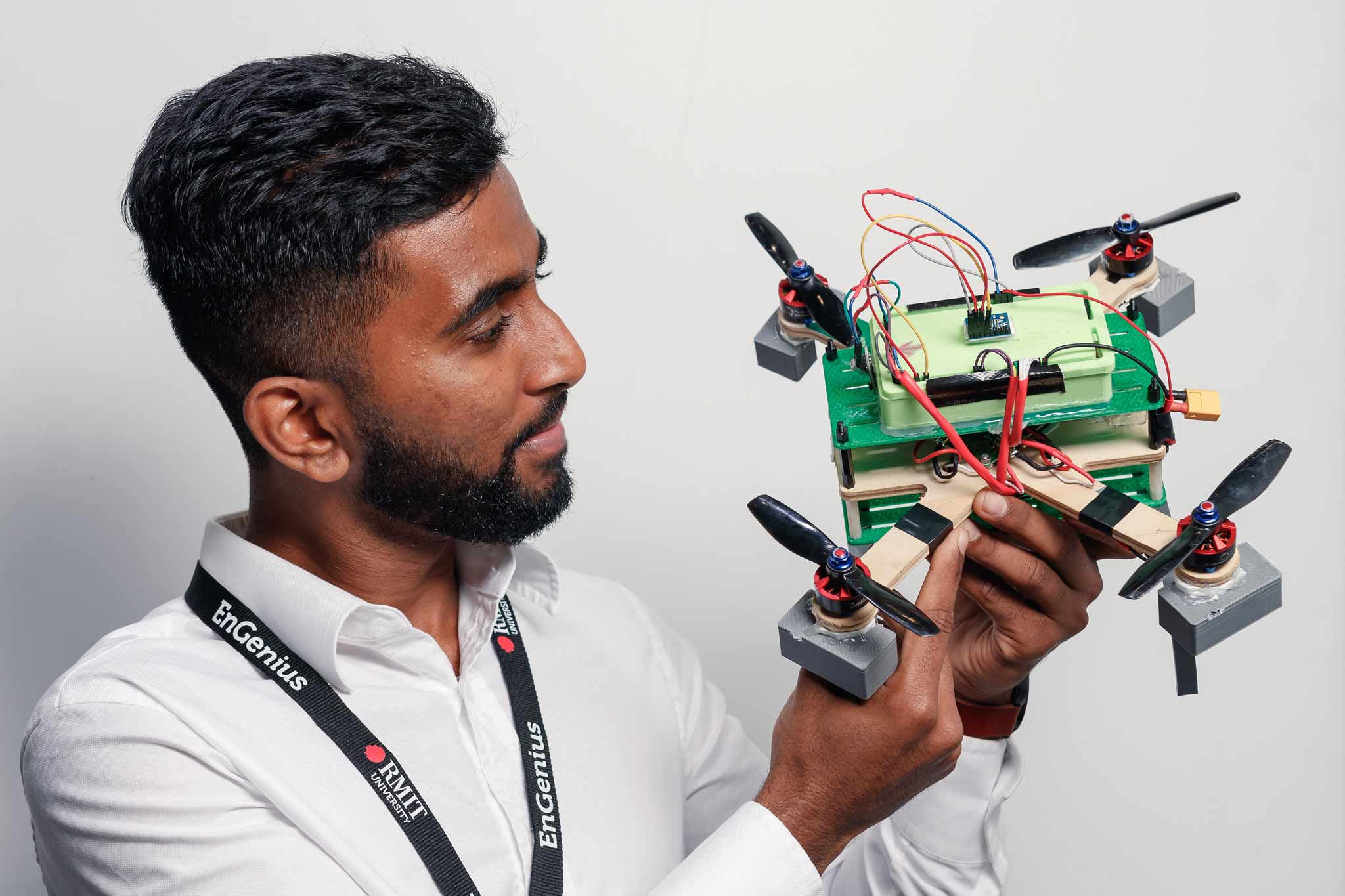
The STEM Future Technology Skills platform courses seek to implement a common cross-discipline learning platform covering key skills for the future for all our students. These stackable courses include:
- Foundations of AI for STEM
- STEM for Sustainable Development
- Innovation Ecosystem and Future of Work
- Cyber-Physical-Biological Systems
They offer discipline-specific experiences across critical STEM issues. By collaborating across the College and university, with subject matter experts, industries, and accrediting bodies we will take advantage of digital learning technologies and thoughtfully blend their current strengths with future-focused pedagogies to maximise student learning and professional development. These courses develop an understanding of STEM-related megatrends and the impacts these will have on professional disciplines and society. By equipping our students with both a deep understanding of their chosen discipline and a breadth of knowledge across STEM applications they will demonstrate a greater range of graduate skills desired by industry and be better prepared for life and work.
Key features |
|
| Multi/trans Disciplinary design and curriculum elements | Learning activities consolidate subject matter with envisioned skills of the STEM Professional (students are not just passive learners and content consumers but also knowledge creators and problem-solvers). |
| Industry Relevant | Partners from industry contribute content and continue to demonstrate interest and relevance in our courses. |
| Authentic, purposefully designed activities and assessments | Activity-based learning framework with extensive opportunities for interaction, reflection, and collaboration with peers from across STEM disciplines and year levels. |
| Pushing the boundaries of innovation - digitally in the first instance but also in all other aspects. | Navigation and design are digitally and pedagogically innovative. |
| Modular | Each module has its own assessment, with the potential for stacking. |
Learning Design and Development Team - Key People
- Anselm Paul, Manager Learning Design
- Mark Derbyshire, Manager Digital Development
- Simon Gibson, Senior Learning Designer
- Dianne Herft, Digital Media Officer
- Tania Macdonald, Senior Learning Designer
- Jim Hsu, Digital Media Designer
- Tom Cotton, Senior Learning Designer
- Paul Hellwege, Manager Digital Development
- Keith Hibbert, AR/VR Developer
- Aditi Daware, Learning Designer
- Lam Dac Nguyen, Digital Assets Developer
- Dr Charu Rana, Learning Designer
- Maria Matheas, Digital Assets Developer
- Dr Laura Kocoska, Learning Designer
- Yolanda Rios, Digital Media Designer
- Rachael Lahiff, Learning Designer
- Mimma Luppino, LMS project officer (casual)
Digital Innovation
Developing world-leading practice in STEM teaching through digital innovation, RMIT's STEM Centre for Digital Innovation sets the standard.
The Centre's mission is to foster a culture of innovation in learning and teaching in STEM at RMIT through strategic partnerships, research-informed leadership, and digital solutions.
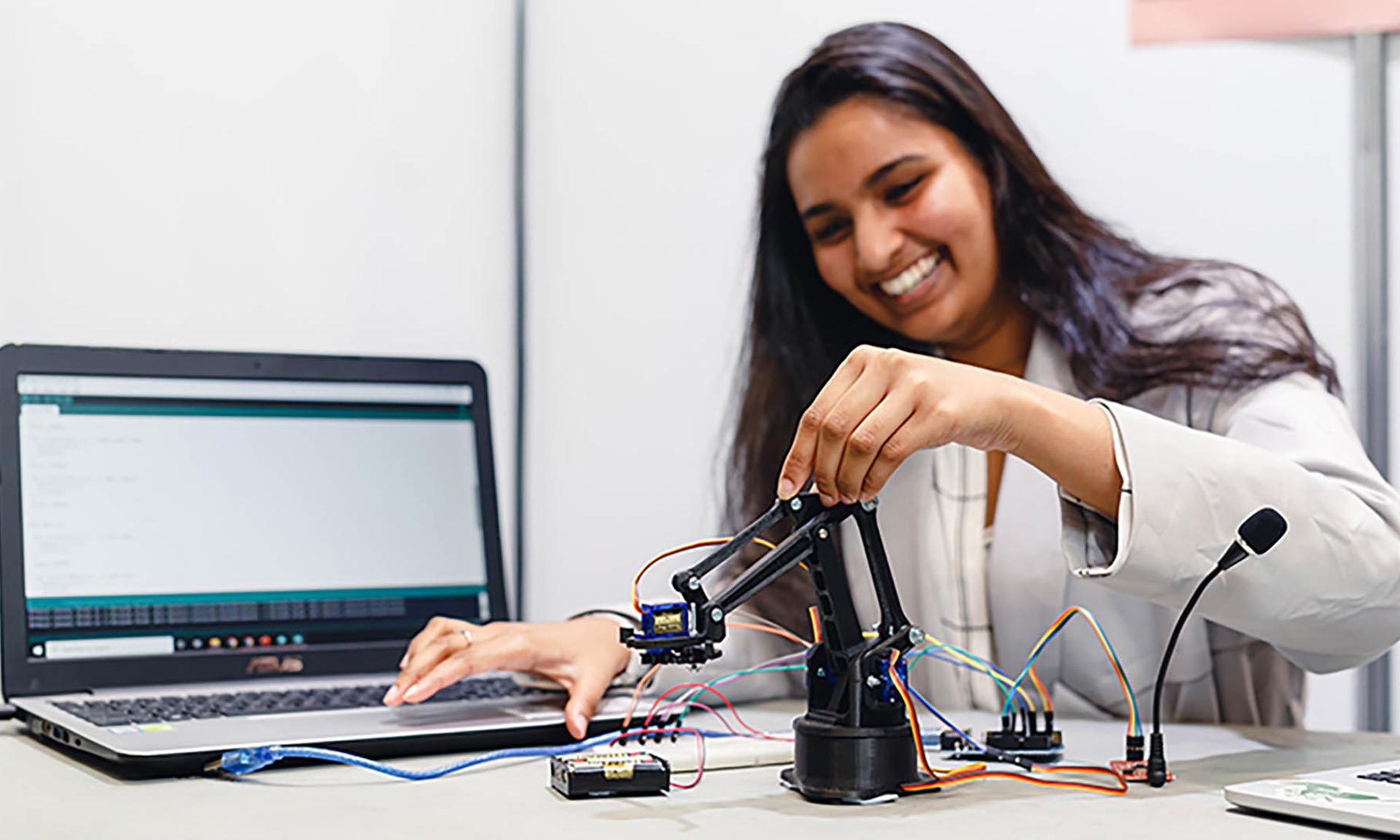
The four key areas of activity to support this mission are to:
- Seek out, evaluate, configure, and develop appropriate digital technologies to enhance learning & teaching
- Establish and enhance formal partnerships with the STEM College as a basis for multidimensional collaboration
- Provide a research-informed perspective on innovations and develop relevant research projects
- Foster and enhance a culture of innovation in the STEM College
STEM Centre for Digital Innovation - Key people
- Professor James Harland, Director STEM Centre for Digital Innovation
- Professor Michelle Spencer, Deputy Director STEM Centre for Digital Innovation
- Dr Ian Peake, Digital Solutions Architect
- Mr Jack Belcher , Software Engineer
- Dr Robert Shen, Director, AWS Cloud Supercomputing Hub
- Jordan Cook-Irwin, Senior Developer - Mixed Realities
Quality Assurance
Enhancing program and course offerings, and associated processes, to continuously improve the student learning experience and outcomes.
The Quality Enhancement Team is responsible for managing STEM College strategies for program development, quality, and enhancement. The team works with educational and functional leaders across the College to monitor program and course alignment with university policy frameworks and external regulatory standards. The team works collaboratively with Internal Audit Compliance Risk and Regulation (IACRR), the Centre for Academic Quality and Enhancement (CAQE), STEM College academic leaders and operational teams to strengthen practices and program offerings in response to the changing educational landscape and regulatory environment.
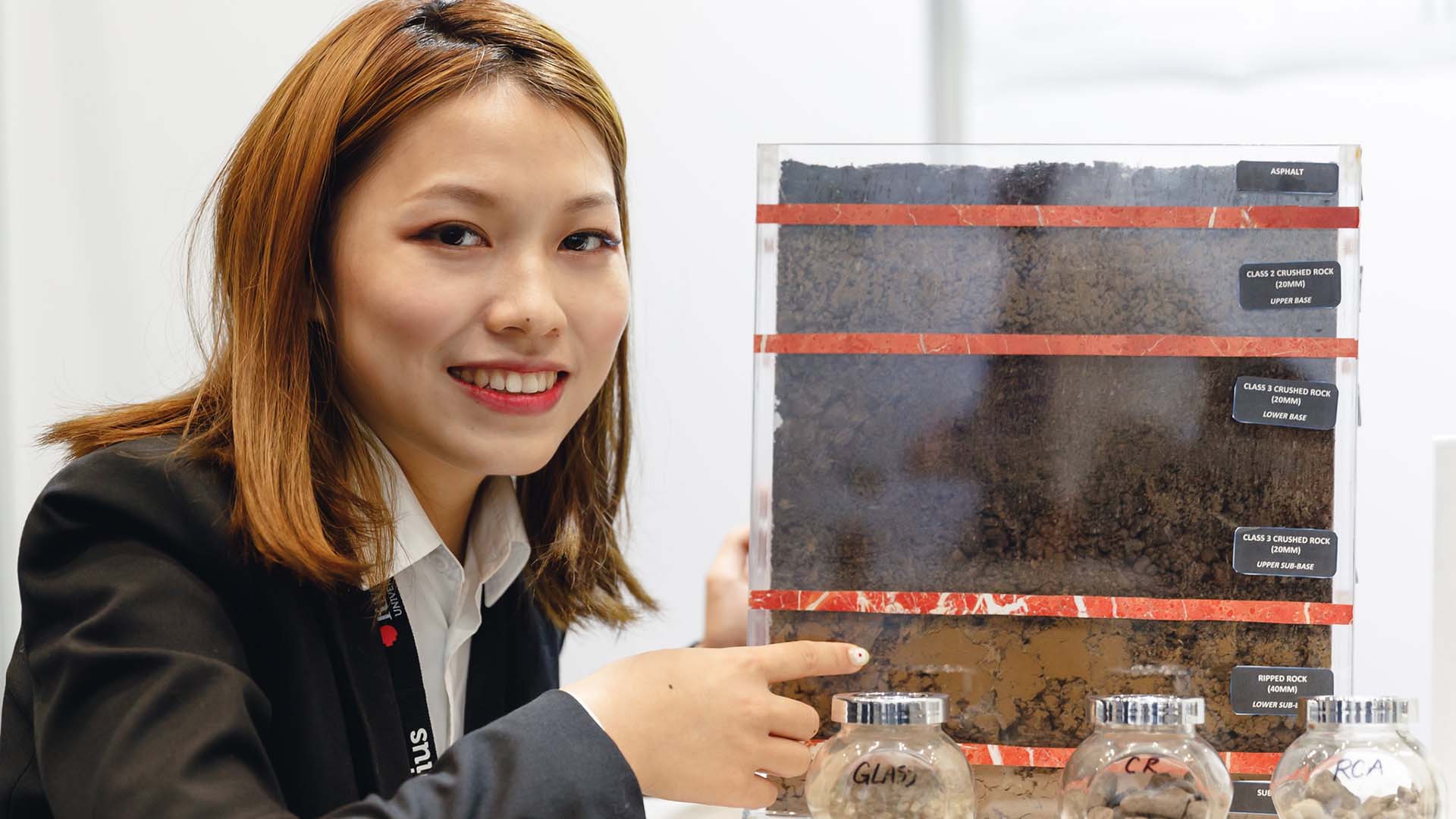
Major activities include:
- oversight of audits
- coordination and support of Comprehensive and Annual Program Reviews
- review of new program developments and significant program modifications for regulatory compliance and alignment
- provision of advice on policies and regulatory frameworks
- provision of content to and support of professional accreditation submissions
- interrogation of data to identify risks and opportunities
- development of responses to audit and program review outcomes
A primary objective of the team is to monitor that actions aimed at enhancing programs have been implemented and establish if these actions have had the desired effect.
Quality Enhancement Team - Key People
- Francine Brennan, Senior Manager
- Sathiyavani Gopal, Senior Officer
- Margaret Bird, Accreditation Project Officer
- Kath Lynch, QE Coordinator
- Bec Bridges, QE Coordinator
- Dale Lin, QE Officer
- Renee Mizza, Officer
Teaching Awards, Grants and Scholarships
Celebrating and recognising outstanding learning and teaching contributions through Awards, Grants and Scholarships.
The annual STEM Learning and Teaching Awards celebrate and recognise the achievements of our diverse STEM teaching community. They recognise individuals and teams who have made outstanding contributions to student learning and the student experience, based on evidence-based practice and scholarship. They are mapped to the University and National award schemes to enable staff to achieve external recognition for their work.
The STEM College also encourages and supports its staff to apply for external teaching grants, fellowships, and scholarships, especially in areas of digital innovation and contemporary teaching practice. We offer support in designing and delivering research projects, drawing on expertise across the Learning Teaching and Quality portfolio to develop cutting edge innovations and solutions to emergent teaching challenges. Working in collaboration with the Centre for Digital Innovation, a key priority is to translate the outcomes of funded research into practical ideas which can be used across our 22 STEM disciplines.
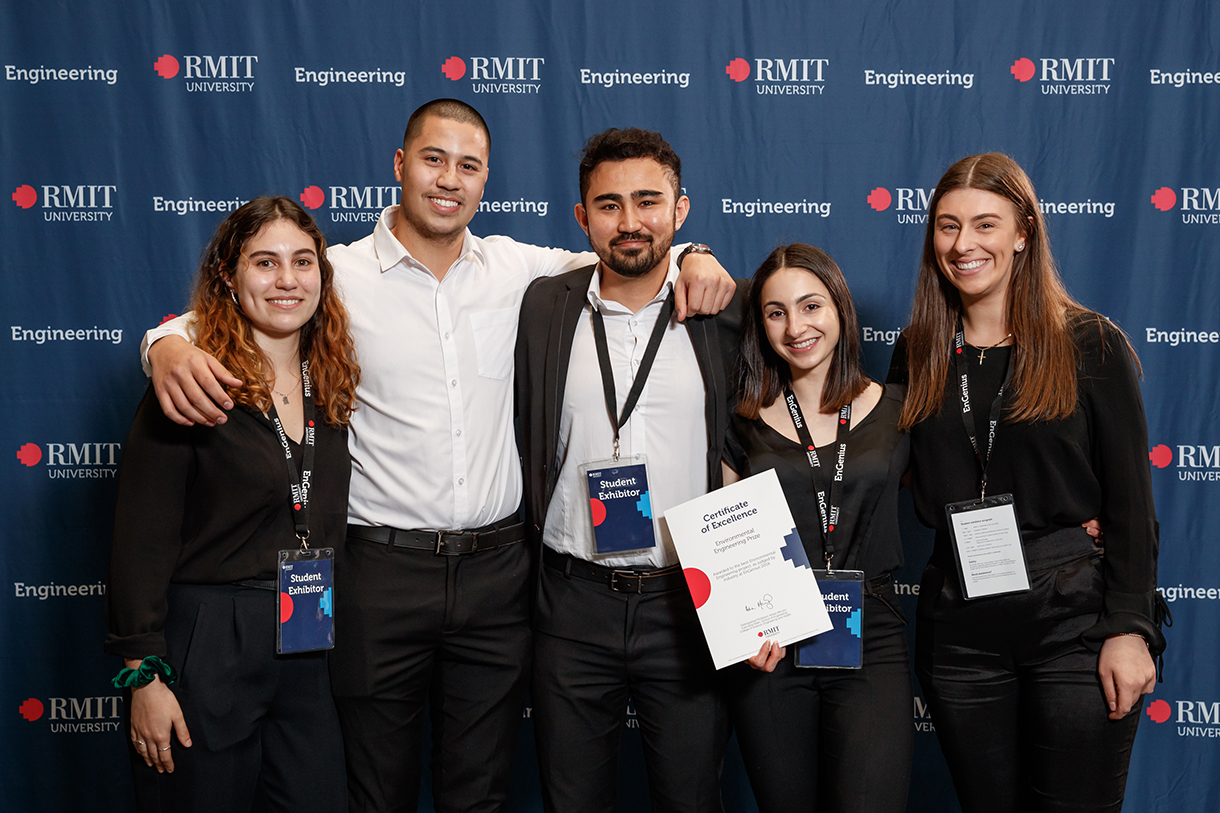
Support for awards, grants and scholarships is led by the Academic Capability Development Team. We offer a lively programme of development workshops and facilitated writing retreats to help staff articulate their teaching philosophies, frame their practices in the literature and to evidence impact. We also assist staff to widen the impact of their practices though contributions to seminars/showcases, exemplars and other professional development resources.
Academic Capability Development Team - Key People
- Dr Timothy D. Smith, Principal Learning and Teaching Advisor
- Grantham Clayford, Senior Learning & Teaching Specialist
- Belinda Domingo, Senior Learning & Teaching Specialist
- Dr Mercy Maleko, Senior Learning and Teaching Specialist
- Pauline Porcaro, Senior Learning and Teaching Specialist
Communities of Practice
Sharing a passion to improve the student learning experience and advancing teaching practice
The STEM College has Communities of Practice in the following areas:
- Blended Learning is now a part of the fabric of teaching in the STEM College. This community of practice for blended learning will reflect on teachers' experience of blended learning, the issues encountered and innovative approaches to dealing with those issues.
- Authentic Assessment. Staff are redesigning their assessments for online learning as well as to better reflect the world of work with authentic assessment. Cluster level communities of practice for assessment is a key College initiative to uplift staff capability in assessment design and practice.
- Program managers are the backbone of the teaching team. They deal with myriad issues day in day out raised by students and the broader RMIT community. Each School in the STEM College has a community of practice for PMs where issues and solutions are shared. These Forums also empower PMs to identify issues that need to be raised with other work teams.
- Discipline groups are the core academic communities in the College. The Deans LT and ADSEs work closely with the Discipline ADs to bring rich teaching and learning focused discussions into these communities. Academic pain points for students and staff are identified and potential solutions explored.
Communities of Practice - Key People
Engineering and Technology Cluster
- Professor Margaret Jollands, Dean Learning & Teaching
- Associate Professor Sara Moridpour, Associate Dean Student Experience, School of Engineering
- Dr Santha Sumanasekara, Associate Dean Student Experience, School of Computing Technologies
- Ms Lynda Solc, Student Experience Project Officer
Health and Science Cluster
- Professor Sonja Cleary, Dean Learning & Teaching
- Professor Mark Osborne, Associate Dean Student Experience, School of Science
- Dr Elizabeth Verghese, Associate Dean Student Experience, School of Health and Biosciences
- Melanie Birch-Inwood, Student Experience Project Officer
Industry Experience and Work Integrated Learning Opportunities
Developing our future workforce through industry partnering and Work Integrated Leaning opportunities
Opportunities for industry
RMIT offers multiple opportunities for industry to influence and support our future workforce's education and ensure that our students are well prepared to become our future industry leaders.
The channels by which RMIT work with industry includes:
- Speaking to our students as a guest speaker in inspiring the next generation of professionals
- Industry experts take part in our Program Advisory Committees to provide advice to help shape our curriculum to reflect industry needs and best practices
- Industry experts co-teach with our academics by undertaking casual teaching roles
- Industry propose short or longer-term student projects and work with the students in the development of smart and innovative solutions
- Industry takes students on paid/unpaid placements where the students work on-site on real industry problems with industry supervision.
- Providing support for scholarships and prizes in enriching the future of students
- Mentor, challenge, motivate and empower our students by participating in informal meetings and networking events
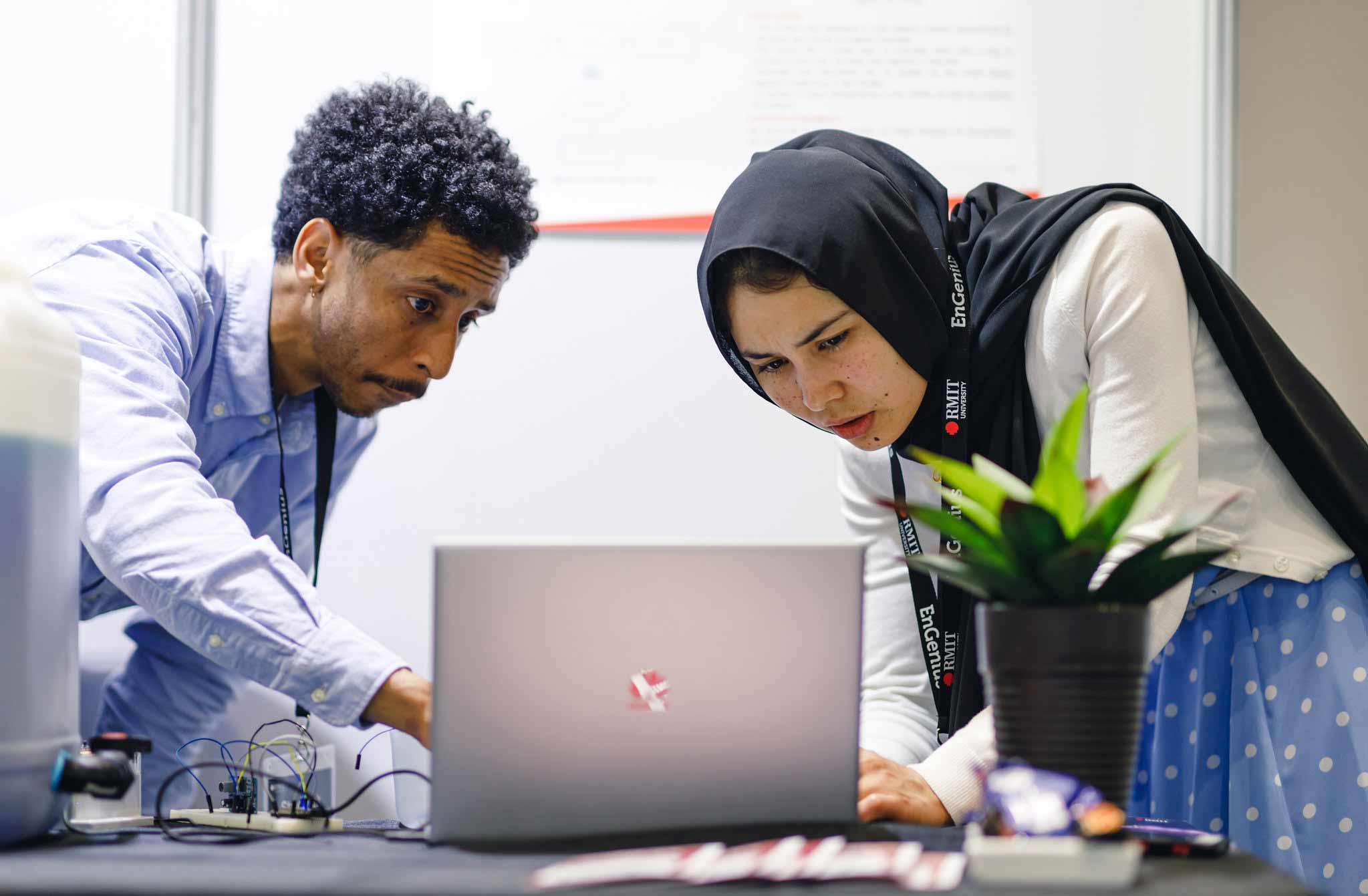
The benefits for our Industry Partners include:
- Access to a pool of next generation talent that can develop bespoke solutions for industry needs spanning all areas of Science, Technology, Engineering and Maths (STEM).
- Ability to promote employment opportunities to the highest calibre of students and graduates including targeting specific candidates
- Forging of relationships between Industry experts and Academics experts at RMIT leading to opportunities for research, skills training, and future collaborations.
If you are interested in working with the STEM College to develop opportunities for your organisation, please contact the Industry Engagement Team STEM-W&E-Industry@rmit.edu.au and we will book in a time to talk to you.
Opportunities for Student
Students at RMIT have a variety of opportunities to gain work experience throughout their degrees. These fall under the following categories:
1. Simulated WIL
a. students undertake practical training in high end simulated work environments
b. industry case studies are used in class the development of real life solutions
c. guest industry speakers take part in lectures and tutorials
d. industry experts mentor students
e. students undertake Hackathons with industry posed problems
2. Projects
a. Industry collaborators present challenges to Capstone student to resolve, the outcomes being presented back to the industry partner
b. Research teams develop research questions in line with their funded research that forms projects for Capstone students
c. Students undertake remote projects with international industry partners
3. Placement/Internships
a. Students undertake short unpaid placements with industry partners
b. Students undertake paid internships with industry partners
c. International placement opportunities (under COVID normal practices)
The WIL and Engagement Team - Key People
- Dr Helen McPartlan, Associate Director Wil and Engagement
- Barti Murugesan, Engagement Manager
- Deb Freeman, WIL Manager
- Melissa Howard, WIL Agreements Senior Coordinator
- Bec Capone, WIL Operations Senior Coordinator
Academic Capability Development and Professional Learning
Ensuring our Academic staff are at the forefront of contemporary, evidence-based teaching practice.
To ensure that STEM College students receive the highest quality education possible, the College supports academic and teaching staff to transform practice and strive for excellence in learning and teaching through a program of professional learning opportunities that draws on evidence-based strategies, cutting edge pedagogy, and scholarly innovations. The College supports staff at all career levels to improve and recognise teaching excellence and to build confidence, capacity, and capability in all areas of teaching, learning, and assessment, leading to a distinctive and high-quality student learning experience.
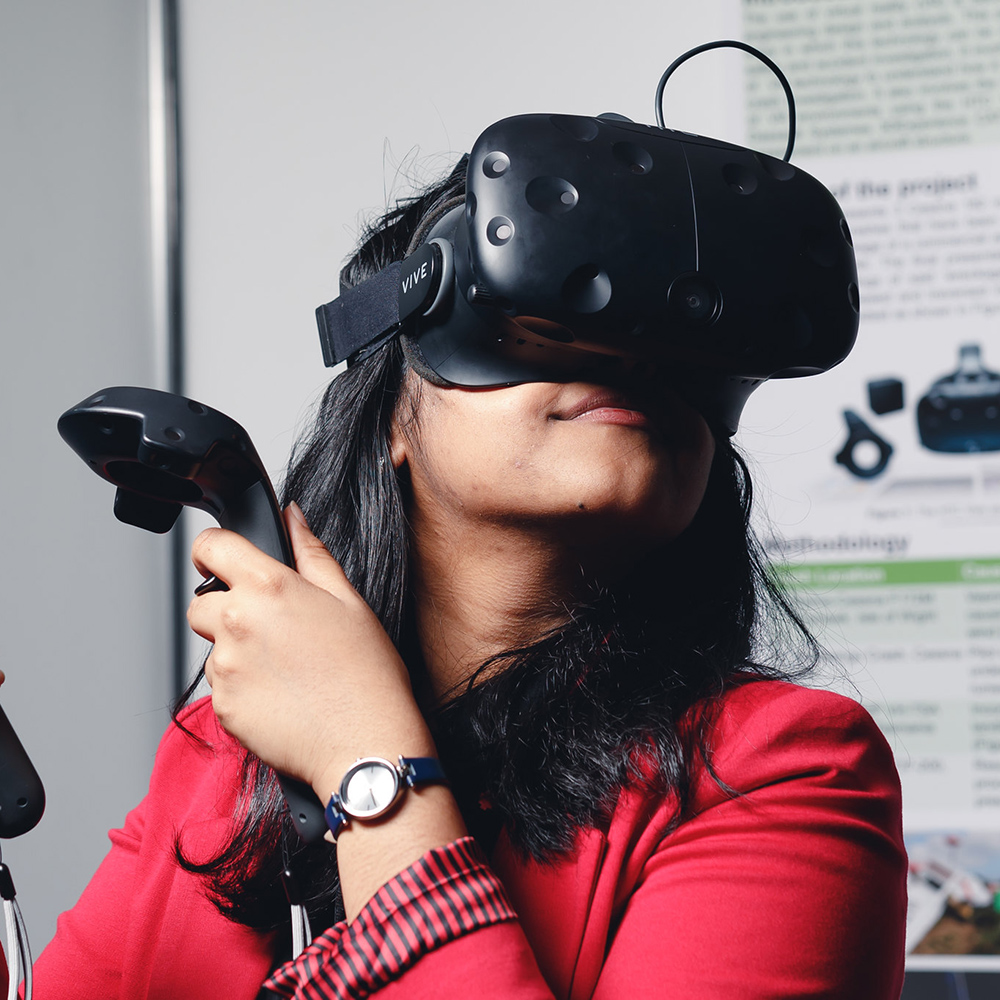
Key activities
- Develop essential professional learning resources, activities and events aligned to current and future College priorities.
- Provide support and advice to staff/teams on teaching enhancement, improvement, and innovation projects.
- Develop resources and initiatives which promote and support scholarly practice and scholarship of teaching and learning (SoTL).
In addition to this, the Learning Design and Development team facilitates highly interactive BYOiD (Bring Your Own Ideas) incubator sessions with staff. The practical sessions invite academic staff to bring their own ideas on a topic of inquiry to share, receive feedback on and gain insights from the dialogue to further shape their ideas and build capability.
Academic Capability Development Team - Key People
- Dr Timothy D. Smith, Principal Learning and Teaching Advisor
- Grantham Clayford, Senior Learning & Teaching Specialist
- Belinda Domingo, Senior Learning & Teaching Specialist
- Dr Mercy Maleko, Senior Learning and Teaching Specialist
- Pauline Porcaro, Senior Learning and Teaching Specialist